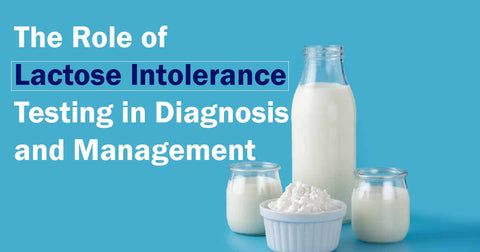Alcohol intolerance testing stands as a critical tool in understanding an individual's physiological response to alcohol consumption. At its core, it enables us to comprehend the intricate relationship between our body's reaction to alcohol and its potential impact on vital organs, notably the liver.
Alcohol intolerance testing encompasses a range of diagnostic methods designed to assess how the body metabolizes and reacts to alcohol ingestion. These tests provide insights into an individual's genetic predisposition or biological markers that influence their ability to process alcohol efficiently.
The liver, often referred to as the body's powerhouse, plays a central role in processing alcohol. Its function extends far beyond metabolizing substances; it detoxifies the body, regulates metabolism, and aids in digestion. Preserving liver health is crucial for overall well-being and longevity.
Understanding the correlation between alcohol intolerance and liver health is vital. People with a reduced capacity to metabolize alcohol may experience adverse effects, potentially leading to liver damage over time. Exploring this connection sheds light on the significance of identifying alcohol intolerance early on to mitigate potential risks to liver function.
Understanding Alcohol Intolerance

Alcohol intolerance refers to the body's inability to properly metabolize and process alcohol. Unlike an allergy, which triggers an immune system response, alcohol intolerance is primarily due to a genetic inability to break down alcohol efficiently. This condition can result in various uncomfortable symptoms, even with small amounts of alcohol consumption.
Alcohol intolerance manifests through a range of symptoms that can vary from person to person. These may include:
- Flushing: One of the most common symptoms, characterized by a sudden reddening of the face, neck, or chest after consuming alcohol.
- Nausea and Vomiting: Some people may experience queasiness or vomiting shortly after drinking alcohol.
- Headaches and Dizziness: Alcohol intolerance can lead to headaches, dizziness, or a general feeling of being unwell.
- Rapid Heartbeat: Increased heart rate or palpitations might occur after consuming even a small amount of alcohol.
Causes and Symptoms
The primary cause of alcohol intolerance is a genetic variant that affects the body's ability to produce an enzyme called aldehyde dehydrogenase (ALDH). This enzyme is crucial for breaking down alcohol into acetic acid, which the body can eliminate.
People with alcohol intolerance often have variations in their ALDH genes, resulting in reduced enzyme activity. As a consequence, when alcohol is consumed, toxic byproducts like acetaldehyde accumulate in the body, triggering the unpleasant symptoms associated with alcohol intolerance.
How Alcohol Intolerance Relates to Liver Function
Alcohol intolerance serves as an alarm bell for potential complications in liver health, offering a critical indicator of how an individual's body processes and reacts to alcohol consumption. The connection between alcohol intolerance and liver health lies in the liver's vital role as the primary organ responsible for metabolizing alcohol.
Liver's Role and Alcohol Metabolism
The liver stands at the forefront of alcohol metabolism. When someone experiences alcohol intolerance due to genetic factors, the inefficient breakdown of alcohol places undue stress on the liver. The inability to metabolize alcohol effectively results in the accumulation of toxic byproducts, potentially causing harm to liver cells over time.
Impact on Liver Function
 People with alcohol intolerance may face heightened risks to their liver health. The inability to process alcohol properly due to genetic inefficiencies can contribute to liver inflammation, fatty liver disease, and progressively severe conditions like fibrosis and cirrhosis. These conditions pose substantial threats to liver function and overall well-being.
People with alcohol intolerance may face heightened risks to their liver health. The inability to process alcohol properly due to genetic inefficiencies can contribute to liver inflammation, fatty liver disease, and progressively severe conditions like fibrosis and cirrhosis. These conditions pose substantial threats to liver function and overall well-being.
Warning Sign for Complications
Recognizing alcohol intolerance becomes more than a matter of discomfort; it becomes a warning sign for potential liver complications. It serves as an early indicator that prompts people to reassess their alcohol consumption habits to protect their liver health. Failure to address alcohol intolerance could exacerbate liver issues, leading to severe and irreversible damage.
Liver Health and Alcohol Consumption
The liver serves as the primary battleground where alcohol undergoes its initial breakdown. Once alcohol enters the system, it's absorbed into the bloodstream and subsequently routed to the liver for processing. Here, alcohol dehydrogenase (ADH) takes charge, converting alcohol into acetaldehyde, a toxic substance. Further metabolic processes convert acetaldehyde into less harmful components before eventual elimination from the body.
Effects of Excessive Alcohol Consumption on the Liver
- Inflammation and Fatty Liver
Excessive and consistent alcohol intake can trigger the accumulation of fat in the liver, leading to a condition known as fatty liver disease. This ailment, if left unaddressed, progresses and can pave the way for more severe liver damage.
- Alcoholic Hepatitis
Continued heavy drinking may provoke liver inflammation, resulting in a condition termed alcoholic hepatitis. This ailment poses a serious threat and is marked by liver swelling, inflammation, and the potential for liver failure.
- Cirrhosis
The gravest consequence of prolonged alcohol abuse manifests in cirrhosis, wherein liver tissue gets replaced by scar tissue, severely impairing liver function. Cirrhosis becomes a critical factor contributing to liver failure, significantly impacting morbidity and mortality rates worldwide.
Long-term Impact on Liver Health
- Irreversible Damage
While the liver boasts a remarkable regenerative capability, chronic alcohol abuse can surpass its restorative abilities, leading to irreversible damage. This irreversible harm underscores the critical importance of responsible alcohol consumption.
- Risk of Liver Cancer
The amalgamation of chronic inflammation and scarring significantly heightens the probability of developing liver cancer due to prolonged alcohol consumption. The increased risk factors into the importance of moderating alcohol intake to protect liver health.
- Importance of Moderation
Understanding the profound impact of alcohol on liver health emphasizes the indispensable need for moderation in drinking habits. Embracing responsible alcohol consumption practices remains vital in averting potential liver damage and ensuring long-term liver health.
Alcohol Intolerance Testing Methods
 Alcohol intolerance testing plays a crucial role in identifying an individual's sensitivity or adverse reactions to alcohol consumption. Various methods are utilized to assess alcohol intolerance, each with its distinct advantages and limitations.
Alcohol intolerance testing plays a crucial role in identifying an individual's sensitivity or adverse reactions to alcohol consumption. Various methods are utilized to assess alcohol intolerance, each with its distinct advantages and limitations.
Available Testing Methods
- Genetic Testing
This method involves analyzing specific genetic markers associated with alcohol metabolism. Variations in genes such as ADH1B and ALDH2 can indicate reduced alcohol tolerance and susceptibility to adverse reactions. Genetic testing offers insights into an individual's genetic predisposition to alcohol-related issues, providing a foundational understanding of their potential reactions to alcohol consumption.
- Blood Tests
Blood tests are utilized to measure the levels of enzymes like gamma-glutamyl transferase (GGT), alanine aminotransferase (ALT), and aspartate aminotransferase (AST). Elevated levels of these enzymes can signal liver damage due to alcohol consumption. These tests are instrumental in diagnosing the extent of liver injury caused by excessive alcohol intake.
- Biomarker Assessment
Biomarkers like carbohydrate-deficient transferrin (CDT) and phosphatidylethanol (PEth) serve as indicators of chronic alcohol consumption. These markers provide insights into an individual's long-term drinking patterns, helping to gauge the severity and duration of alcohol use.
Accuracy and Reliability of Testing
- Genetic Testing
Genetic testing for alcohol intolerance is generally accurate in identifying predispositions to alcohol-related issues. It can offer valuable insights into an individual's inherent response to alcohol. However, it's essential to acknowledge that genetic testing might not encompass all factors contributing to alcohol intolerance, such as environmental influences or lifestyle factors.
- Blood Tests
Blood tests are highly reliable in detecting liver damage caused by alcohol consumption. Elevated enzyme levels often correlate with the severity of liver injury, providing valuable diagnostic information to assess the impact of alcohol on liver health accurately.
- Biomarker Assessment
Biomarkers like CDT and PEth have demonstrated reliability in indicating prolonged alcohol use. These tests offer a comprehensive view of an individual's drinking patterns over time, aiding in assessing the chronicity and intensity of alcohol consumption.
Impact of Alcohol Intolerance Testing on Liver Health
Alcohol intolerance testing plays a vital role in safeguarding liver health by offering a personalized approach to understanding one's susceptibility to alcohol-induced damage. By identifying people who may be more prone to adverse reactions to alcohol, these tests contribute significantly to preventive healthcare measures, particularly in preserving liver function and overall well-being.
Prevention of Liver Damage
Early identification of alcohol intolerance empowers people to make informed choices about their alcohol consumption. For those with a genetic predisposition or reduced capacity to metabolize alcohol effectively, this knowledge acts as a safeguard against potential liver damage. By recognizing their intolerance, people can opt for abstinence or significantly reduce their alcohol intake, thereby preventing the accumulation of harmful toxins in the liver.
Moreover, this proactive approach aids in averting the progression of liver diseases such as fatty liver, cirrhosis, or hepatitis. By steering clear of excessive alcohol consumption, people mitigate the strain on their liver, reducing the risk of inflammation and organ damage that could lead to severe health complications.
Personalized Approach to Alcohol Consumption
Alcohol intolerance testing encourages a more personalized and tailored approach to alcohol consumption. Instead of adhering to general guidelines, people can make lifestyle choices aligned with their body's specific reactions to alcohol. This personalized insight prompts responsible drinking habits, fostering a healthier relationship with alcohol that minimizes the risk of liver-related complications.
Understanding one's alcohol intolerance status encourages conscious decision-making regarding drinking habits. It empowers people to moderate their intake or opt for alternative beverages that suit their tolerance levels, thereby reducing the likelihood of overtaxing the liver and its detoxification processes.
Promotes Healthier Drinking Habits
 The impact of alcohol intolerance testing extends beyond individual health. It serves as a catalyst in promoting awareness and responsible drinking habits on a broader scale. By highlighting the diverse reactions people can have to alcohol, these tests contribute to public health campaigns, advocating for moderation and informed decision-making regarding alcohol consumption.
The impact of alcohol intolerance testing extends beyond individual health. It serves as a catalyst in promoting awareness and responsible drinking habits on a broader scale. By highlighting the diverse reactions people can have to alcohol, these tests contribute to public health campaigns, advocating for moderation and informed decision-making regarding alcohol consumption.
They also aid in the development of educational programs aimed at mitigating alcohol-related health issues, thereby reducing the societal burden on healthcare systems. By emphasizing the importance of understanding one's alcohol tolerance, these tests contribute to a culture that values moderation, promotes liver health, and fosters a proactive approach towards alcohol consumption, benefitting both people and communities.
Conclusion
Alcohol intolerance testing is a vital tool in understanding individual responses to alcohol and their implications for liver health. Genetic testing provides a foundational understanding of inherent predispositions, while blood tests offer concrete evidence of liver damage caused by alcohol consumption. Biomarker assessments further complement this by revealing long-term drinking patterns. Alternative testing methods include at-home alcohol intolerance test kits such as those manufactured by Advance Food Intolerance Labs (AFIL).
Watch AFIL test kits testimonial videos click here
References:
- Vasiliou, Vasilis, Michael Malamas, and Marios Marselos. "The mechanism of alcohol intolerance produced by various therapeutic agents." Acta pharmacologica et toxicologica 58.5 (1986): 305-310.
- Agarwal, Dharam P., and H. Werner Goedde. Alcohol metabolism, alcohol intolerance, and alcoholism: Biochemical and pharmacogenetic approaches. Springer Science & Business Media, 2012.
- Moriya, Akio, et al. "Alcohol consumption appears to protect against non‐alcoholic fatty liver disease." Alimentary pharmacology & therapeutics 33.3 (2011): 378-388.
- Moriya, Akio, et al. "Roles of alcohol consumption in fatty liver: a longitudinal study." Journal of Hepatology 62.4 (2015): 921-927.
- Parker, Richard, Seung-Jin Kim, and Bin Gao. "Alcohol, adipose tissue and liver disease: mechanistic links and clinical considerations." Nature reviews Gastroenterology & hepatology 15.1 (2018): 50-59.
- KANDA, Tomosaka, and Yutaka OHTA. "Personal Genetic Tests of Alcohol Intolerance for Moderate and Responsible Drinking; Actions for Reducing Harmful Drinking." JOURNAL OF THE BREWING SOCIETY OF JAPAN 107.2 (2012): 84-91.
- Adams, Karla E., and Tonya S. Rans. "Adverse reactions to alcohol and alcoholic beverages." Annals of Allergy, Asthma & Immunology 111.6 (2013): 439-445.


.png?v=1737390083)
.png?v=1737187409)


